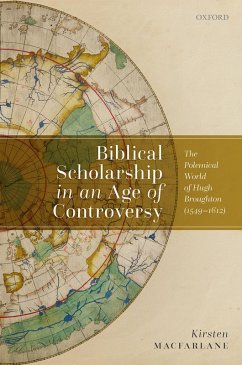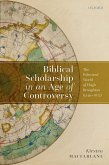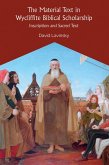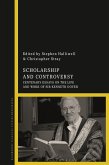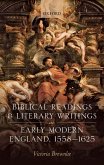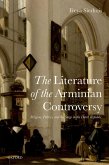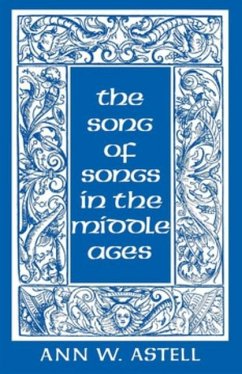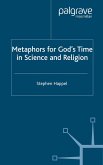This book provides a new account of a distinctive, important, but forgotten moment in early modern religious and intellectual history. In the late sixteenth and early seventeenth centuries, Christian scholars were investing heavily in techniques for studying the Bible that would now be recognised as the foundations of modern biblical criticism. According to previous studies, this process of transformation was caused by academic elites whose work, whether religious or secular in its motivations, paved the way for the Bible to be seen as a human document rather than a divine message. At the time, however, such methods were not simply an academic concern, and they pointed in many directions other than that of secular modernity. Biblical Scholarship in an Age of Controversy establishes previously unknown religious and cultural contexts for the practice of biblical criticism in the early modern period, and reveals the diversity of its effects. The central figure in this story is the itinerant and bitterly divisive English scholar Hugh Broughton (1549-1612), whose prolific writings in Hebrew, Greek, Latin, and English offer a new and surprising image of Protestant intellectual culture. In this image, scholarly advances were not impeded but inspired by strict scripturalism; criticism was driven by missionary ideals, even as actual proselytization was sidelined; and learned neo-Latin texts were repackaged to appeal to ordinary believers. Seen through the eyes of Broughton and his neglected colleagues and followers, the complex and unexpected contributions of reformed Protestant intellectuals and laypeople to longer-term religious and cultural change finally become visible.
Dieser Download kann aus rechtlichen Gründen nur mit Rechnungsadresse in A, B, BG, CY, CZ, D, DK, EW, E, FIN, F, GR, HR, H, IRL, I, LT, L, LR, M, NL, PL, P, R, S, SLO, SK ausgeliefert werden.

